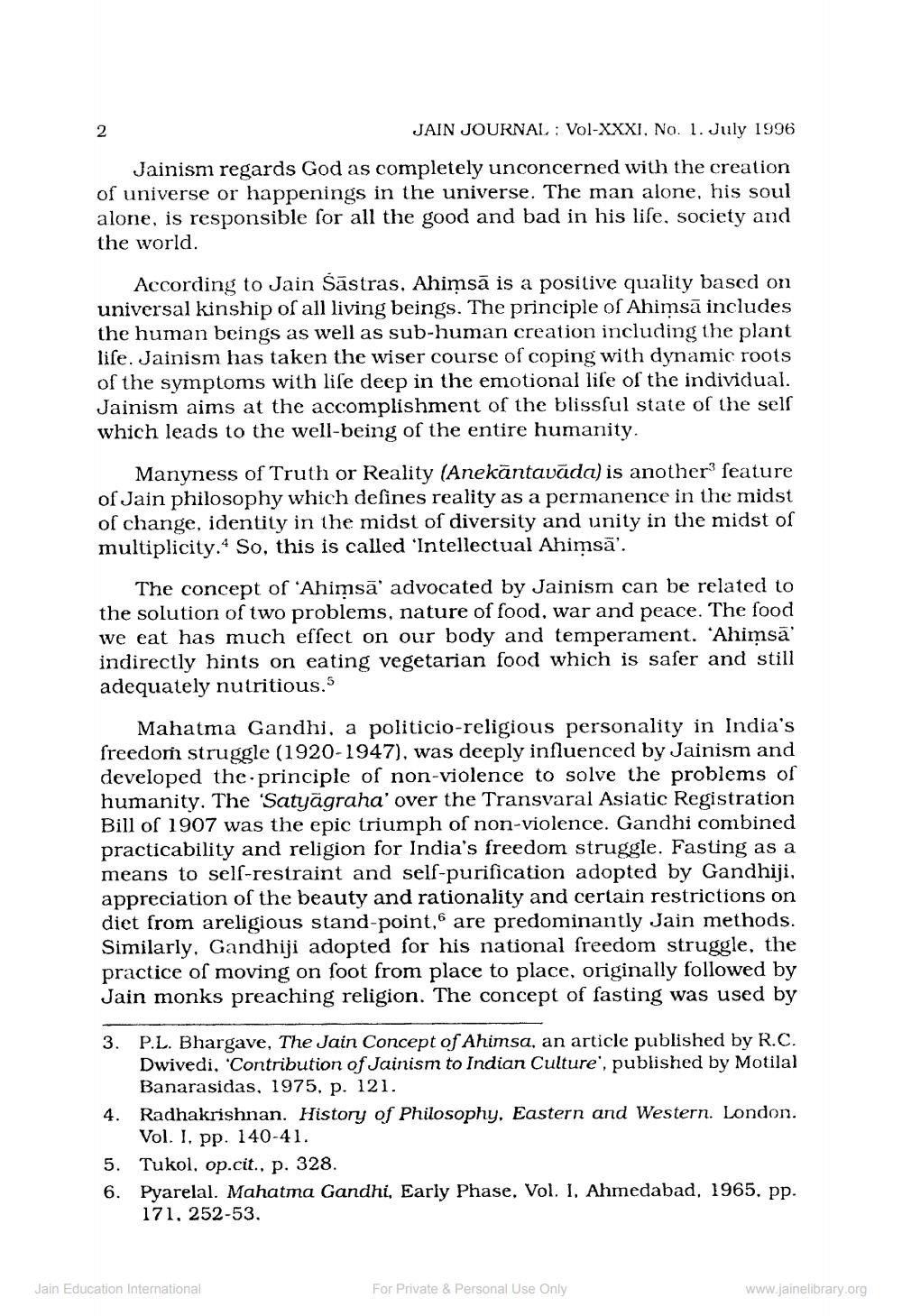________________
JAIN JOURNAL: Vol-XXXI, No. 1. July 1996
Jainism regards God as completely unconcerned with the creation of universe or happenings in the universe. The man alone, his soul alone, is responsible for all the good and bad in his life, society and
the world.
2
According to Jain Sastras, Ahimsa is a positive quality based on universal kinship of all living beings. The principle of Ahimsa includes the human beings as well as sub-human creation including the plant life. Jainism has taken the wiser course of coping with dynamic roots of the symptoms with life deep in the emotional life of the individual. Jainism aims at the accomplishment of the blissful state of the self which leads to the well-being of the entire humanity.
Manyness of Truth or Reality (Anekantavada) is another feature of Jain philosophy which defines reality as a permanence in the midst of change, identity in the midst of diversity and unity in the midst of multiplicity. So, this is called 'Intellectual Ahimsa'.
The concept of 'Ahimsa' advocated by Jainism can be related to the solution of two problems, nature of food, war and peace. The food we eat has much effect on our body and temperament. 'Ahimsa' indirectly hints on eating vegetarian food which is safer and still adequately nutritious.5
Mahatma Gandhi, a politicio-religious personality in India's freedom struggle (1920-1947), was deeply influenced by Jainism and developed the principle of non-violence to solve the problems of humanity. The 'Satyagraha' over the Transvaral Asiatic Registration Bill of 1907 was the epic triumph of non-violence. Gandhi combined practicability and religion for India's freedom struggle. Fasting as a means to self-restraint and self-purification adopted by Gandhiji, appreciation of the beauty and rationality and certain restrictions on diet from areligious stand-point, are predominantly Jain methods. Similarly, Gandhiji adopted for his national freedom struggle, the practice of moving on foot from place to place, originally followed by Jain monks preaching religion. The concept of fasting was used by
3. P.L. Bhargave, The Jain Concept of Ahimsa, an article published by R.C. Dwivedi, 'Contribution of Jainism to Indian Culture', published by Motilal Banarasidas, 1975, p. 121.
4.
Radhakrishnan. History of Philosophy, Eastern and Western. London. Vol. I, pp. 140-41.
5. Tukol, op.cit., p. 328.
6. Pyarelal. Mahatma Gandhi, Early Phase, Vol. I. Ahmedabad, 1965, pp. 171, 252-53.
Jain Education International
For Private & Personal Use Only
www.jainelibrary.org




